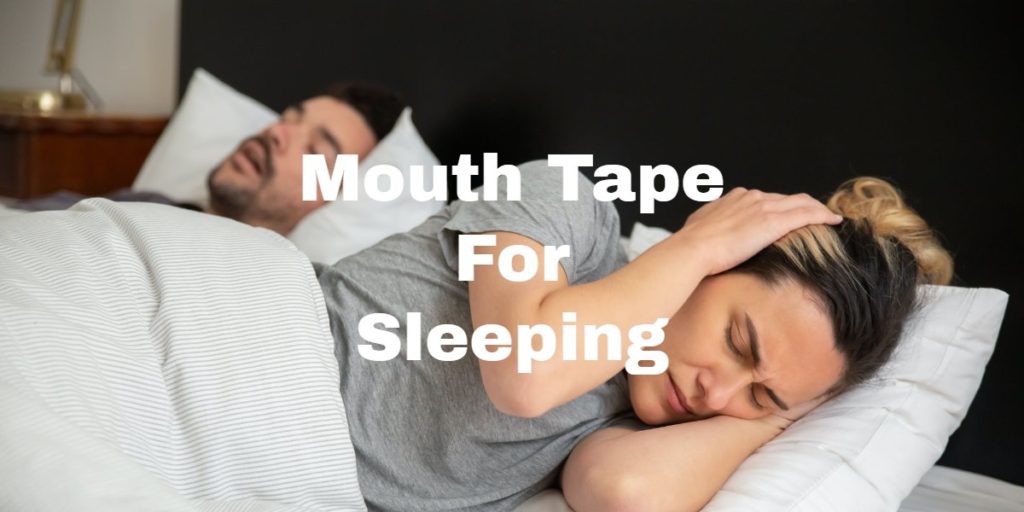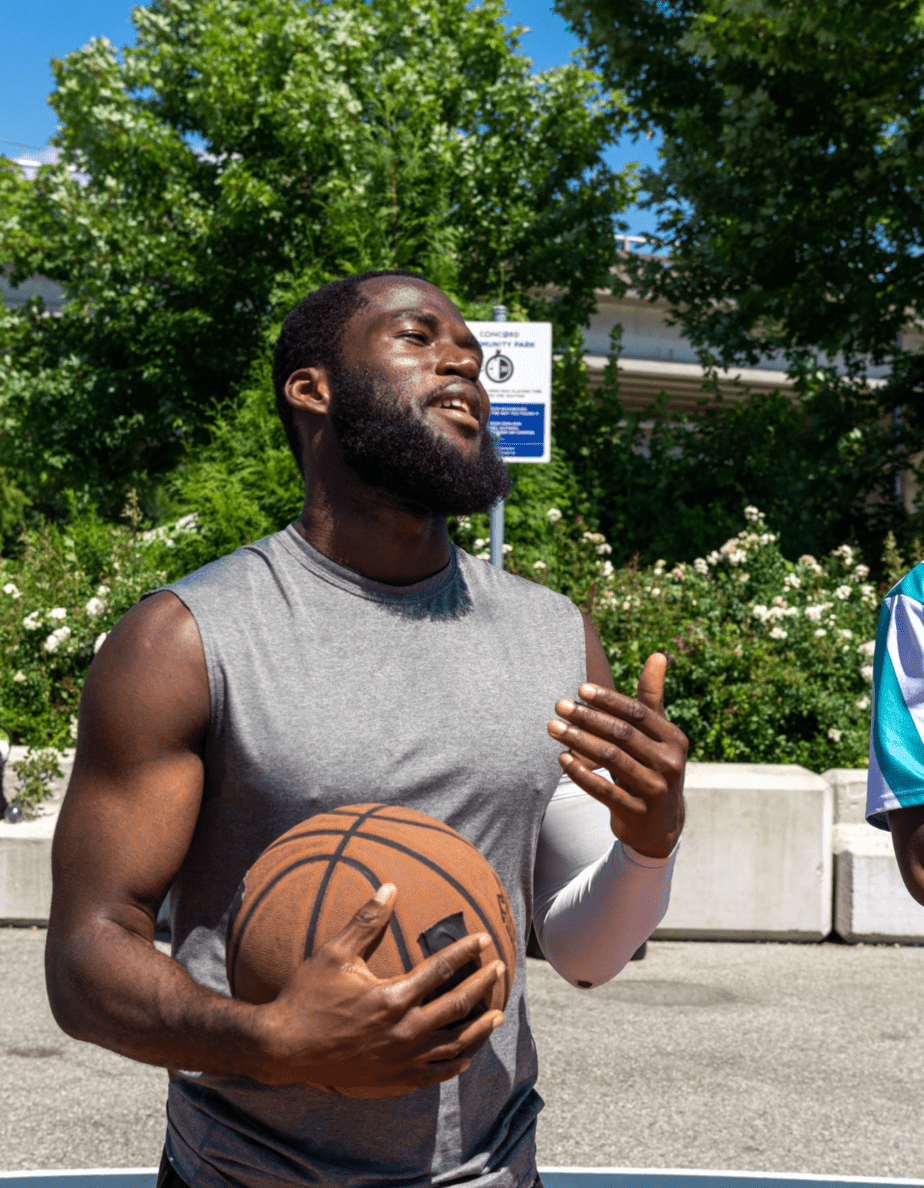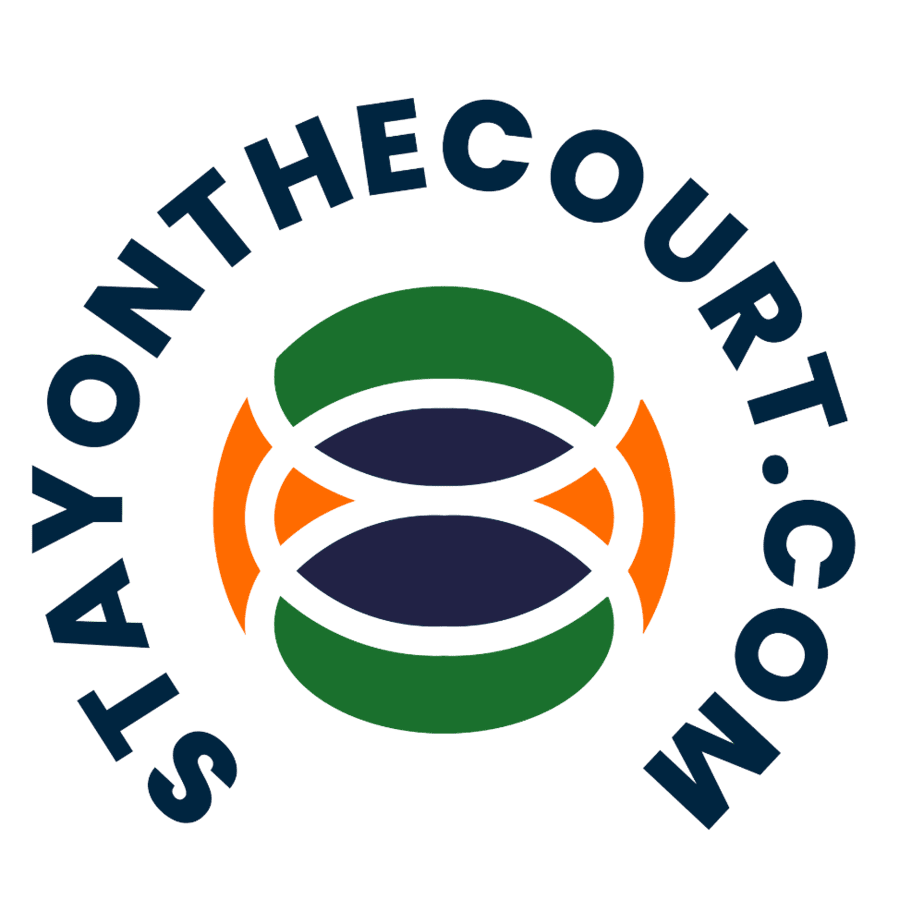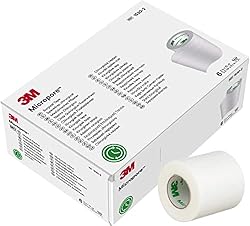My Experience Using Mouth Tape While Sleeping: Benefits, Costs, Apnea, and Best Tapes
Over the last year, I have been hearing more and more about using mouth tape for sleeping. I guess I could call myself an early adopter since I had already started mouth taping a little before hearing about it so often. What finally brought me on board was the promise of getting more oxygen to the brain. I am what they call “APOE4 positive” which means I have a gene that increases the likelihood of getting dementia. My father was starting down that path before we lost him to cancer. He also snored like crazy and likely had sleep apnea. Based on my research, getting as much oxygen to the brain as possible during sleep will be important for someone with my genes.
Sleep quality is a global concern, impacting millions of people every day. I am going to share with you my experience with mouth taping so you can make a decision on whether to do it. And, if you do it, the taping solutions that I have found and what I currently use.
Understanding the Concept of Mouth Taping
Mouth taping is a simple practice with origins linked to ancient breathing techniques. In essence, it involves placing a specialized tape over the mouth before sleep, promoting nose breathing throughout the night. The science behind this? Breathing through the nose, as opposed to the mouth, has been linked to improved sleep quality and overall health.
James Nestor is a renowned author known for his book “Breath: The New Science of a Lost Art” which explores the importance of proper breathing for health and well-being. It discusses the benefits of nasal breathing, which aligns with the concept of mouth taping for sleep improvement.
The Importance of Proper Breathing for Quality Sleep
How we breathe greatly influences our sleep quality. While we might not give it much thought, nose breathing is essential for optimal health and sleep. Unlike mouth breathing, it aids in proper oxygenation and can decrease the risk of sleep-related conditions such as snoring and sleep apnea.
The Benefits of Mouth Taping for Sleep
The benefits of mouth taping stretch far beyond reduced snoring. Let’s explore some of them:
- Improved sleep quality: Breathing through the nose promotes a slower, more controlled breath rate, contributing to better sleep quality.
- Reduced sleep apnea: Studies show that mouth taping can reduce sleep apnea symptoms, a condition characterized by repeated pauses in breathing during sleep.
- Improved oral health: Mouth taping can prevent dry mouth, a condition often caused by mouth breathing that can lead to oral health issues like tooth decay and gum disease.
These benefits aren’t just hypothetical. They are backed by scientific studies and research that validate the efficacy of mouth taping.
How to Use Mouth Tape for Sleep
If you’re considering trying mouth taping, it’s important to do it right. Here’s a step-by-step guide:
- Choose the right tape: Opt for a tape that’s designed specifically for mouth taping. Such tapes are gentle on the skin and easy to remove.
- Prep your lips: Make sure your lips are clean and dry before applying the tape. I then put lip balm on because I currently use more general use 3M tape and the balm keeps it from taking some of your more sensitive lip skin when you remove it in the morning.
- Apply the tape: Place the tape across your lips, making sure it adheres well but is not too tight or uncomfortable.
- Check for comfort: You should be able to breathe comfortably through your nose. If you feel any discomfort, remove the tape and try again.
Remember, while it’s generally safe to use mouth tape for sleep, it’s important to consult your healthcare provider, especially if you have any pre-existing health conditions.
Safety and Concerns Associated with Mouth Taping
Like any other practice, mouth taping does come with its own set of concerns. The main one is – is it safe? Most experts agree that when done correctly and responsibly, mouth taping is safe for most people. However, it’s not recommended for those with severe respiratory disorders, children without adult supervision, or those who feel overly anxious about the practice.
Mouth Tape For Sleep Apnea
Sleep apnea is a sleep disorder characterized by repeated pauses in breathing during sleep. These pauses can last for several seconds and occur multiple times throughout the night, leading to fragmented sleep and decreased oxygen levels in the body. I am not diagnosed with sleep apnea, but if I flip onto my back I still show some symptoms, even with the mouth tape.
Mouth taping promotes nasal breathing, which can be beneficial for individuals with sleep apnea. By keeping the mouth closed during sleep, mouth taping encourages air to flow through the nasal passages. This helps maintain a more stable and unobstructed airway, reducing the likelihood of apnea events.
When we breathe through the nose, the air gets filtered, humidified, and warmed, which is beneficial for respiratory health. Nasal breathing also stimulates the production of nitric oxide, a molecule that plays a role in widening the airways and improving oxygen uptake. By promoting nasal breathing, mouth taping can contribute to better airflow and oxygenation during sleep.
Remember, every individual’s situation is unique, and the effectiveness of mouth taping for sleep apnea may vary. If you suspect you have sleep apnea or any other sleep-related disorder, seek medical advice for proper diagnosis and guidance on suitable treatment options.
Mouth Tape While Sleeping: My Experience
I have been mouth taping while sleeping for over a year now. First off, it isn’t a great look and definitely does not add to bedroom romance. I pair it with using nasal strips which really turns up the bedroom heat. But, it has definitely reduced my snoring. If I flip on my back I still may snore every once in a while, but if I side sleep (which is my norm) it has reduced it dramatically.
I have looked at many of the tapes that are designed specifically for mouth taping. I started with straight-up masking tape (you could use athletic tape as well). I have now upgraded to 3M Micropore tape which is a little easier on the skin. My trick is to put on lip balm before I apply the tape. You can use this 3-step process:
- Wash your face or at least around your lips so the tape will stick to the skin above and below your lips.
- Apply lip balm to your lips. This will keep it from ripping the skin off your lips the next morning when you remove it.
- Apply the tape either vertically or horizontally over your lips so you can’t easily open your mouth. Most recently, I now just put one piece vertically across my lips, and the skin below and above the lip act as an anchor to keep my mouth from opening.
Best Mouth Tape for Sleeping
I am planning to try some of the higher quality mouth strips for sleeping that are specifically made for this such as Hostage Tape (a little expensive and made for working out as well), Somnifix, Sleep Sloth (I just like that name), or Dr. Johnes.
Here are some others that are popular and reasonably priced. Fortunately, this isn’t rocket science. As I said, even regular tape will do the job. There may not necessarily be the best mouth tape for sleeping. The most important thing may be what is most convenient and cost-effective.
| Brand | Description | Features |
|---|---|---|
| SomniFix | Specially designed tape for mouth taping during sleep | Hypoallergenic, gentle on the skin, promotes nasal breathing |
| WoodyKnows | Nasal breathing aids with mouth closure tape | Comfortable and flexible, helps reduce snoring and mouth breathing |
| Azazar | Sleep aid tape for mouth taping during sleep | Gentle adhesive, designed to keep the mouth closed during sleep |
Conclusion
The concept of mouth taping might seem unusual, but its potential benefits are worth exploring. It’s a natural, cost-effective solution that may greatly improve your sleep quality. Of course, individual experiences may vary, and what works for one might not work for another. If you decide to try mouth taping, do so with an open mind and pay attention to how your body responds.
Hopefully, this post and my experience have provided you with insights into the concept of mouth taping for better sleep quality. As always, it’s important to consult a healthcare provider before trying any new health practices.
Update: I still use mouth tape periodically. But it hasn’t consistently fixed my snoring so I am now trying out the SnoreRX mouthpiece and we will see how that goes. I will update this article or write a new one on that device or mandibular adjustment devices in general.
Frequently Asked Questions
Can I use regular tape for mouth taping?
It is recommended to use specially designed mouth tape, which is gentle on the skin and easy to remove. Regular tape may cause discomfort or skin irritation.
Is mouth taping effective for sleep apnea?
Yes, mouth taping can potentially help with sleep apnea by encouraging nasal breathing, which maintains a better airway flow, reducing sleep apnea symptoms. However, it’s not a substitute for professional medical treatment, especially in severe cases of sleep apnea.
Can I mouth tape if I have a cold or blocked nose?
It’s not advisable to use mouth tape if you have a cold or a blocked nose. Mouth taping restricts mouth breathing, so if you have difficulty breathing through your nose, it could lead to discomfort or safety issues.
How quickly can I expect to see results from mouth taping?
The time to see results can vary widely from person to person. Some people notice improved sleep quality after the first night, while for others, it may take a few weeks to adjust to the new habit and experience noticeable benefits.
Can mouth taping cause harm or have negative side effects?
When done correctly, mouth taping is generally safe and side effects are rare. However, if the tape is applied too tightly or if you’re unable to breathe comfortably through your nose, it can cause discomfort. Always ensure you can breathe properly through your nose before using mouth tape.

Troy Wallace
Troy Wallace is Certified Basketball Speed Specialist and shares his experiences in trying to stay as healthy as possible to stay on the court. He is active in coaching youth basketball in YMCA, Team Work Sports Nebraska, and, currently, in the Jr. Warriors program in Omaha, NE. Visit Troy's Full Author Bio Page or email him directly.
Meaningful conversations happening daily about training, recovery, and injury-specific rehabilitation as well as sport-specific discussions on playing, coaching and refereeing your favorite sport. We welcome experts and those with curious minds seeking answers.
Join The Stay On The Court Community!


